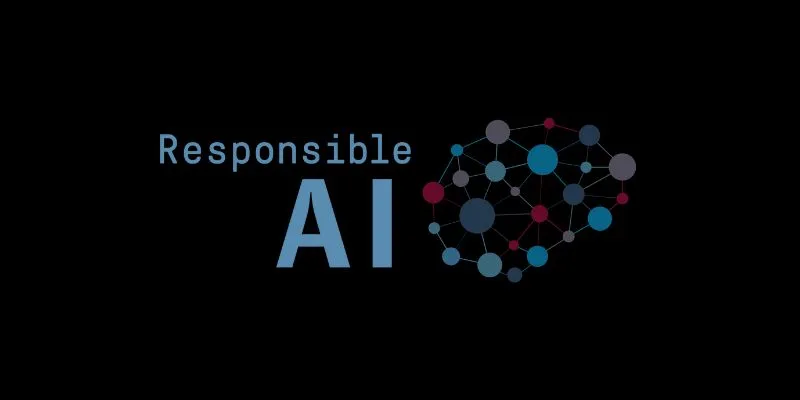Artificial intelligence (AI) is rapidly evolving, leaving a significant impact on the technological world. It enhances decision-making, revolutionizes businesses and industries, and simplifies our lives. Despite its numerous benefits, why haven’t all industries fully embraced AI models?
Companies encounter several barriers to AI adoption , which hinder them from leveraging AI to its full potential. These barriers include a lack of vision, insufficient AI expertise, a lack of innovative culture, budget constraints, privacy and security concerns, legacy system issues, a high carbon footprint, data quality and availability, limited knowledge, and bias and ethical concerns. Let’s delve into these challenges in detail!

Top 10 Challenges Companies Face During AI Adoption
As AI continues to progress, its adoption becomes increasingly challenging. If you’re planning to incorporate AI into your operations, it’s essential to be aware of the challenges you might face. Here are some prominent challenges, along with solutions, to make the process more convenient and ensure you choose the right path for the application of AI :
Lack of Vision
A common challenge during AI adoption is the absence of a clear, strategic vision. AI is only effective when implemented with well-developed strategies. Conduct thorough research on AI tools and their applications before integrating them into your business. Analyze your business’s critical components and processes to determine where AI can have the most substantial impact.
Insufficient AI Expertise
Successful AI-powered projects require the right skills to use AI tools effectively. Many companies erroneously believe AI is a tool anyone can use. Instead, train your employees to become proficient before implementing AI. Consider hiring an AI specialist to provide training, ensuring employees can effectively apply AI systems. Top training formats include:
- Peer monitoring
- Collaborative learning
- Video guides
- PDF guides
Lack of Innovative Culture
Innovation is crucial for technological and business growth. AI implementation requires trying new ideas and techniques. Unfortunately, many organizations discourage experimentation, hindering employees from discovering new, beneficial solutions. To foster an innovative culture, businesses should celebrate efforts, motivate employees, and improve cross-departmental collaboration. Encourage experimentation and open communication.
The Cost
The cost and budgeting of AI adoption present significant challenges. Companies often lack specific funding for AI, preventing significant results. To address this, businesses should allocate budgets for AI and prioritize both short- and long-term strategies. A phased investment approach, starting with small-scale projects, allows for budget expansion once desired outcomes are achieved.
Privacy and Security Concerns
Privacy and security concerns are major hurdles in AI adoption. Companies worry about trust and security when processing sensitive data through AI tools. However, implementing governance frameworks can mitigate data misuse risks, alleviating privacy breach concerns.

Problems with Legacy Systems
Legacy systems pose challenges due to technical, compatibility, and flexibility issues, which can impede AI adoption. Businesses fear their outdated systems are incompatible with modern AI tools. However, using APIs and middleware can facilitate AI adoption without the need for immediate legacy system upgrades.
Data Quality and Availability
High-quality data is essential for effective AI model use. Many companies work with poor-quality data, leading to inaccuracies and undermining even advanced AI models. Establish a data governance strategy to improve data quality and ensure your data is well-organized, clean, and readily available for AI integration.
High Carbon Footprint
AI systems, especially those handling large datasets, consume significant energy and have a high carbon footprint, impacting the environment. To address this, adopt energy-efficient algorithms, green technologies, and optimize computing resources to reduce the carbon footprint while simplifying work.
Bias and Ethical Issues
The development and application of AI models in various sectors raise ethical concerns, particularly related to social impact and bias. Sectors like health and criminal justice must prioritize ethical principles to prevent unfair treatment in hiring, law enforcement, and loan approvals.
Limited Knowledge
While AI is a powerful tool, it cannot surpass human knowledge. Whether using AI for content creation, image generation, or calculations, never fully rely on it. Overreliance can lead to errors. Always cross-check AI-generated results and make necessary corrections, especially when crafting content to add a human touch and avoid plagiarism.
Conclusion:
If you’re considering integrating AI-powered models into your business, the answer is a resounding yes. AI can elevate your business to new heights. However, be aware of the challenges, such as limited knowledge, ethical issues, privacy and security concerns, high carbon footprint, lack of vision, data quality, lack of innovative culture, cost, and insufficient skills. Develop a strategy to overcome these challenges, and you’ll be ready to harness AI’s full potential.
 zfn9
zfn9























